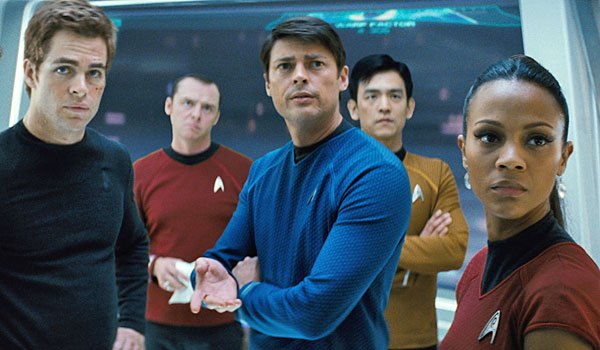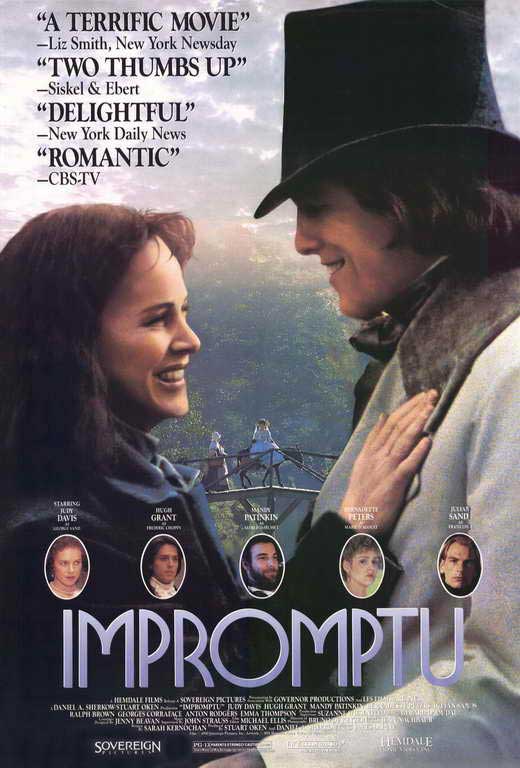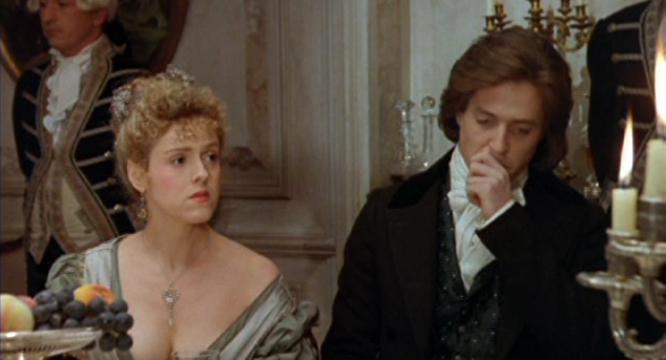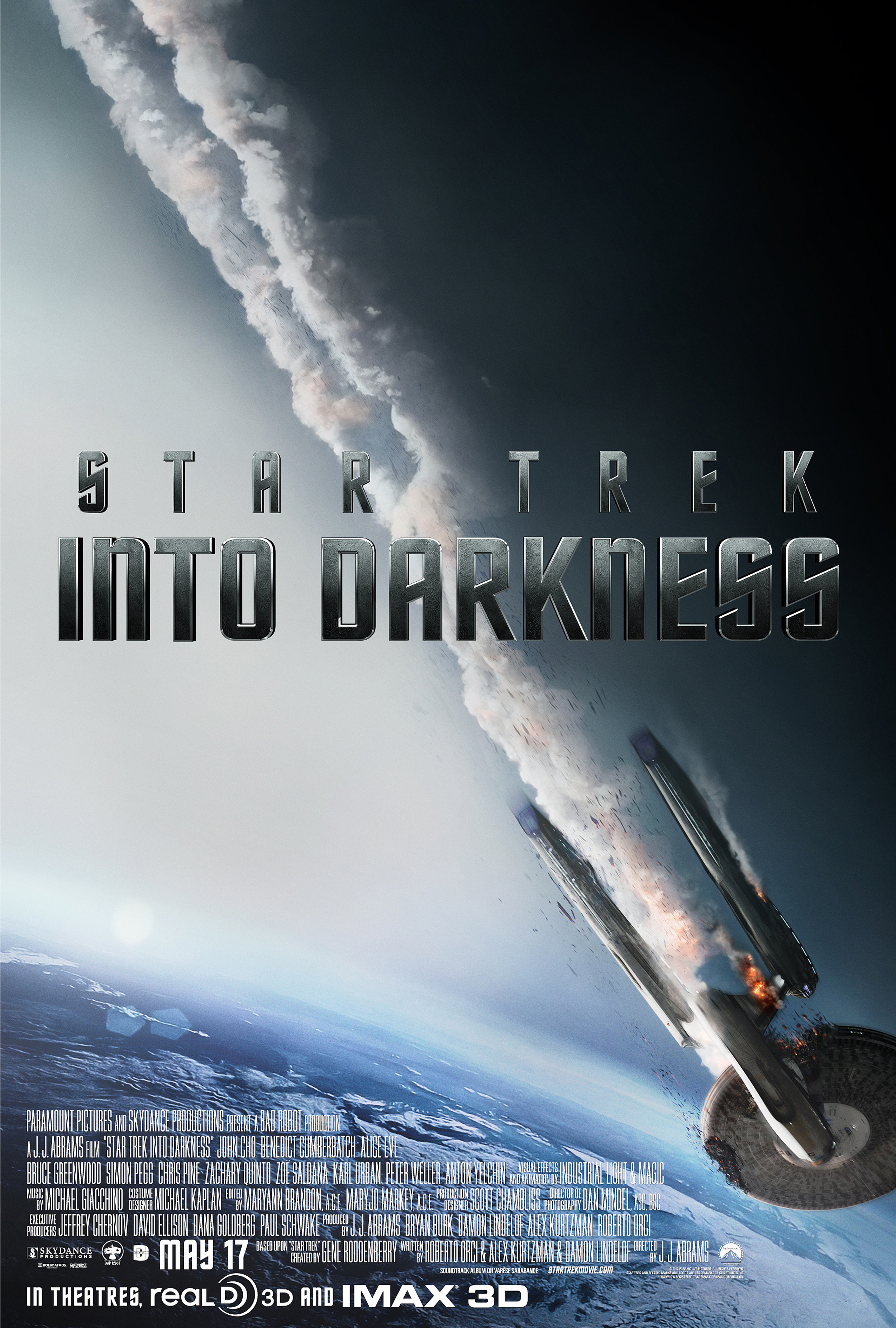

Director: J.J. Abrams, 2013 (PG-13)
The 2009 Star Trek
reboot reintroduced a whole new generation to the characters of Kirk, Spock,
Bones etc, and set the bar high for future installments. Abrams fails to clear
his own mark this time, relying on a generic storyline and action sequences
that entertain but ultimately fail to fully develop fully the characters. Where
his earlier film reset the whole trekkie universe with the destruction of
Vulcan and left the way open to explore new parallel universes, this one pays
homage to the original series, brings Spock back face-to-face with himself, but
does little more than that.
The movie opens with a scene that could have been taken
straight from Raiders of the Lost Ark. Captain Kirk (Chris Pine) and Bones
McCoy (Karl Urban) are running from spear-throwing natives in the jungles of a
distant planet. Meanwhile Spock (Zachary Quinto) descends into the bowels of an
active volcano, in an effort to save the planet (it takes a Vulcan to save a
planet!). But Spock’s action is suicidal, as the Federation’s Prime Directive
prevents the USS Enterprise from saving him, since the spaceship would be seen
by the natives, thereby changing history. Spock accepts his impending death,
since he is a rule-keeper. But Kirk sees things differently, and once rescued
becomes rescuer even if he is breaking a rule or two. This prolog sets the scene
and the ultimate theme, rule-keepers vs rule-breakers, to which we will return.
 The heart of the story focuses on a renegade Federation
officer, John Harrison (Benedict Cumberbatch, most recently of BBC’s Sherlock
fame). When he destroys a London data center, causing immense devastation, he
sets in motion a series of events, fundamentally pitting himself against the
rest of Starfleet. But at that point, Kirk has been demoted from the captaincy
of the USS Enterprise, after Spock’s truthful account of his earlier rescue,
contradicting Kirk’s more vague record.
The heart of the story focuses on a renegade Federation
officer, John Harrison (Benedict Cumberbatch, most recently of BBC’s Sherlock
fame). When he destroys a London data center, causing immense devastation, he
sets in motion a series of events, fundamentally pitting himself against the
rest of Starfleet. But at that point, Kirk has been demoted from the captaincy
of the USS Enterprise, after Spock’s truthful account of his earlier rescue,
contradicting Kirk’s more vague record.
In a key scene early on, Admiral Pike (Bruce Greenwood)
calls Kirk into his office and verbally reams him: “Do you know what a pain you
are? You think the rules don't apply to you. There's greatness in you, but there's
not an ounce of humility.” Herein lies the key contrast between Spock and Kirk.
While Kirk sees Spock as having a “compulsion to follow the rules,” he himself
is reckless. A cowboy, he flies by the seat of his pants.
Which is better: to be a rule-keeper like Spock, or to be a
rule-breaker (or be above the rules) like Kirk? Humans have a contradictory
compulsion to maintain both in tension. We love rules. We formulate rules for
others to keep. This is at the very heart of religion. As Jesus said of the Pharisees, the religious
leaders of his day, quoting the prophet Isaiah, “These people honor me with
their lips, but their hearts are far from me. They worship me in vain; their
teachings are merely human rules.’ (Mk. 7:6-7) When we have these rules, we
have something objective to measure ourselves against, and we can through our
own efforts keep these rules and feel proud. This leads to legalism.
But the other end of the spectrum houses the rule-breaking
anarchist. Such a person considers himself above the law, apart from the rules.
He can do what he likes, he is outside of the system. Such thinking is also
proud and superior. In this way, we supplant God and place ourselves on the
throne, just as Lucifer did when he rebelled against the creator (Isa.
14:12-14).
The key is to be humble and live with the tension. We must
keep the rules where possible, such as the golden rule (Matt. 7:12) and the
greatest commandments (Matt. 22:36-38). But we can break the rules when the
rules become constrictive and require us to deny God and disobey his commands
(Acts 4: 19-20).
Of course, this wouldn’t be Star Trek if Kirk did not regain his captaincy. And through
catastrophe, he is once more put in charge of the Enterprise and takes the
challenge to seek out and destroy Harrison. But when he comes face-to-face with
his enemy, he chooses to disobey and defines his own set of rules.
The whole gang is back alongside Kirk and Spock: Bones,
Uhura (Zoe Saldana), Sulu (John Cho), Checkov (Anton Yelchin) and my favorite,
Scotty (Simon Pegg). Scotty brings the humor, but the film belongs to
Cumberbatch, who proves an eminently superior villain in many senses of the
word.
The movie has multiple set-piece action sequences, and
Abrams is the master of staging these. His big-budget production experience is
on display here. And there are any number of references to the original TV
series, including Mudd, tribbles, and Khan. But to say more is to give away
spoilers.
The other theme that is on display is the evolution of
friendship between Kirk and Spock. In the first film, there was a tension
between them despite old-Spock’s admission to young Kirk that their friendship
was crucial. Here, we see them find this despite Spock’s tendency to put Kirk
into trouble.
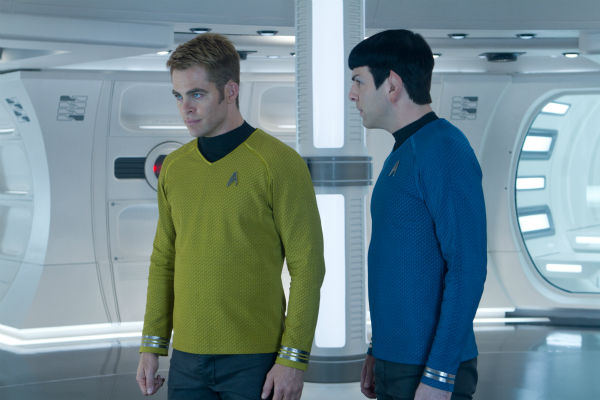 Friendship is one of the joys of humanity. It requires time
and energy. It is developed often in the crucible of pain. It evolves through
careful choice. When faced with suffering caused by another person, if we
choose to forgive the friendship may thrive; if we choose to blame and harbor
grudges, the flame of friendship may be extinguished. We see this in Kirk and
Spock clearly in this film. And, as clichéd as it may be, they each teach the other
a thing or two about feeling emotion and sacrifice.
Friendship is one of the joys of humanity. It requires time
and energy. It is developed often in the crucible of pain. It evolves through
careful choice. When faced with suffering caused by another person, if we
choose to forgive the friendship may thrive; if we choose to blame and harbor
grudges, the flame of friendship may be extinguished. We see this in Kirk and
Spock clearly in this film. And, as clichéd as it may be, they each teach the other
a thing or two about feeling emotion and sacrifice.
Their friendship reminds me of two biblical verses. The first
is from the book of Proverbs: “A friend loves at all times, and a brother is
born for a time of adversity” (Prov. 17:17). Friendship is founded on love. The
second comes from Jesus’ upper room discourse to his disciples: “Greater love
has no man than this, that a man lay down his life for his friends” (Jn.
15:13). Kirk demonstrates this toward the end, in a poignant scene with Spock,
separated by a glass wall. We can only hope for a deeper evolution of character
in all crew members in the next film.
Copyright ©2013, Martin Baggs

